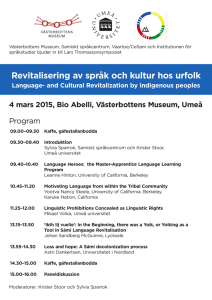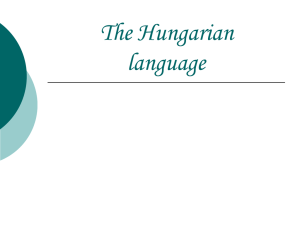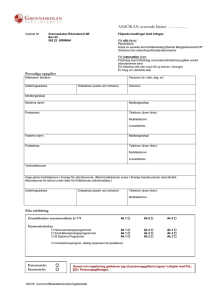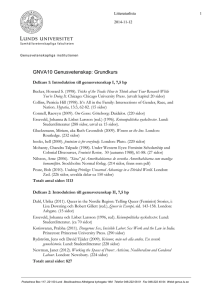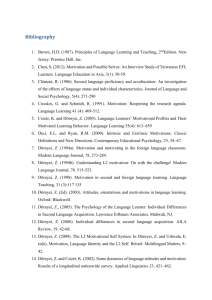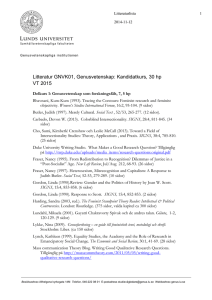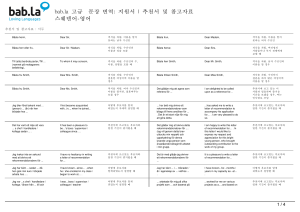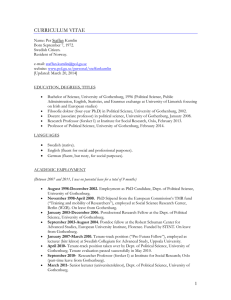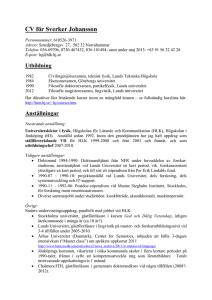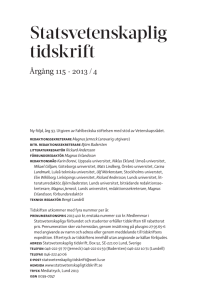En öppning i en sluten ordklass?
advertisement
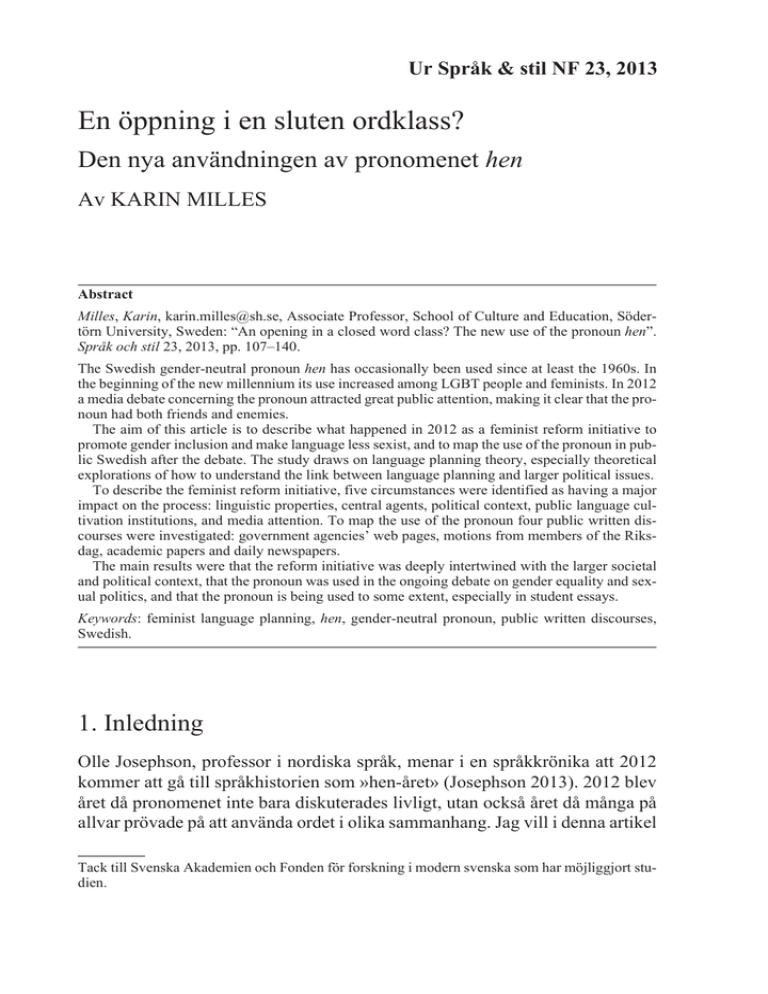
Ur Språk & stilordklass? NF 23, 2013 En öppning i en sluten 107 En öppning i en sluten ordklass? Den nya användningen av pronomenet hen Av KARIN MILLES Abstract Milles, Karin, karin.milles@sh.se, Associate Professor, School of Culture and Education, Södertörn University, Sweden: “An opening in a closed word class? The new use of the pronoun hen”. Språk och stil 23, 2013, pp. 107–140. The Swedish gender-neutral pronoun hen has occasionally been used since at least the 1960s. In the beginning of the new millennium its use increased among LGBT people and feminists. In 2012 a media debate concerning the pronoun attracted great public attention, making it clear that the pronoun had both friends and enemies. The aim of this article is to describe what happened in 2012 as a feminist reform initiative to promote gender inclusion and make language less sexist, and to map the use of the pronoun in public Swedish after the debate. The study draws on language planning theory, especially theoretical explorations of how to understand the link between language planning and larger political issues. To describe the feminist reform initiative, five circumstances were identified as having a major impact on the process: linguistic properties, central agents, political context, public language cultivation institutions, and media attention. To map the use of the pronoun four public written discourses were investigated: government agencies’ web pages, motions from members of the Riksdag, academic papers and daily newspapers. The main results were that the reform initiative was deeply intertwined with the larger societal and political context, that the pronoun was used in the ongoing debate on gender equality and sexual politics, and that the pronoun is being used to some extent, especially in student essays. Keywords: feminist language planning, hen, gender-neutral pronoun, public written discourses, Swedish. 1. Inledning Olle Josephson, professor i nordiska språk, menar i en språkkrönika att 2012 kommer att gå till språkhistorien som »hen-året» (Josephson 2013). 2012 blev året då pronomenet inte bara diskuterades livligt, utan också året då många på allvar prövade på att använda ordet i olika sammanhang. Jag vill i denna artikel Tack till Svenska Akademien och Fonden för forskning i modern svenska som har möjliggjort studien.
